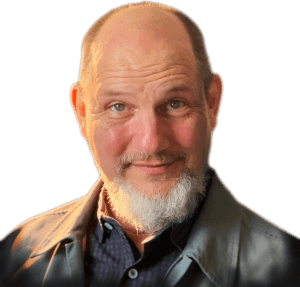Talent has more to do with our ability to to assimilate and integrate new information into what we already know than any special genetic predisposition. Some are quicker on the uptake. But often these people lose interest in their natural abilities. Those who understand the virtue of repetition, who value the tireless efforts invested in their own success, are the ones who ultimately rise above the pack.
I have known a lot of great actors who don’t learn lines quickly, but are ultimately deeper and more facile on stage than those who are “quick studies.” I often find myself apologizing to my fellow actors for slowing down the process of putting a show up on the stage. I certainly beat myself up for not being faster at learning my lines. I put up with a lot of teasing. I’m pretty sure I spend 10 or 20 times more time struggling to learn my lines than most other actors.
I don’t think it’s age related. I actually learn my lines faster now than I did when I was younger. Some older actors learn lines very quickly. I don’t think it’s a lack of intelligence or a sign of a poor work ethic or method. There are many factors that can interfere. I’ve noticed when I’m under stress in other areas of my life, the process is slower. Or sometimes its just a lot of material to master. For whatever reason, some people just take more time to assimilate large batches of complex information than others.
 One thing is certain, it is damn frustrating for those who take a lot of pride in knowing their lines and finding their mark. I’ve always admired these people. And frankly, if you’re in a pinch to put on a show in a very short time, these are the people you want working for you.
One thing is certain, it is damn frustrating for those who take a lot of pride in knowing their lines and finding their mark. I’ve always admired these people. And frankly, if you’re in a pinch to put on a show in a very short time, these are the people you want working for you.
Obviously, the sooner one learns his lines the better. Once the mechanics are in place, the more time can be directed on working on the scene and telling the story. And when you have maybe 12 hours a week for rehearsals over a four week rehearsal period, every moment is precious.
I really want to be clear that I’m not making excuses for being a slow learner. My visual memory is almost photographic. But to be perfectly honest, I’ve always had a lot of shame and guilt around not being able to learn my lines quickly. And I’m not alone. I suppose those of us who are line-challenged probably have no business doing theatre.
On the other hand, I think its safe to say no one works harder than I do, or loves the art of theater more, than I. So I keep inventing new ways to learn my lines. I create visual mnemonic links and triggers. I drop my book a week before everyone else drops theirs. I need that time to experience the scene and the moments, the simple reality of what is happening around me. The lapses in my lines reveal the holes in the scene, which I need to fill.
Johnny Depp uses an ear piece when he films, so the lines are being fed to him in real time. In this way he can respond as if he were spontaneously making them up. For most of the rest of us, the trick of learning our lines and then pretending to make them sound like we’re just making them up on the fly is one of the strangest contrivances and yet most thrilling aspects of the process. I enjoy finding ways to trick myself into being truly surprised in the moment; this habit is probably not conducive to being a good line-learner.
For me, a great performance consists of a string of interconnected living moments, beats, which if not logically connected, create an emotional falseness that I find unbearable. If a moment is missing, it must be discovered during the rehearsal process.
The best directors know this and take the time to help the actors find this line through the scene. A missed line is a revelation that something may be missing. Finding these moments is part of the art of making theatre, at least for me. It is a painful process, something most of my colleagues might relegate to “homework.” Whereas much homework is essential, I think discovering those missing moments during the process of rehearsal should be our primary activity at rehearsals. The through-line is more important than the lines themselves. If that is missing, there is no scene. In fact, sometimes the most interesting moments on stage during a performance are those where the actors find themselves solving the very real problem of getting back on track, as they struggle to go after their goal in the scene. In Dame Judy Dench’s autobiography, she recalls many such moments on stage.
Perfection can be boring.
There are examples of this in other artistic disciplines. We all have experienced and perhaps even admired musicians, whom I call “button pushers,” those who play all the right notes on the page, but have no passion or sense of the sound they are putting into the universe. As a representational painter who has a pretty solid command over values and light, I realize that without a deep passion for expressing myself in the paint itself, my art would be boring indeed. A great artist once stated, “Great defect makes great affect.” A “mistake” from a great artist has more impact than the perfection of an amateur. But without purpose, the motive, the love, “I am become as sounding brass, or a tinkling cymbal.” 1 Cor. 13:1
Again, I won’t argue the point or make excuses for what I’m sure is a very arduous experience for others as well. There is nothing worse than waiting for an actor to find his line, night after night, during rehearsals and sometimes even in performance. And I realize, I’m no Judy Dench. I concede that the right notes and rhythms for a musician, saying the right lines for an actor and distinguishing correct values for an artist, are paramount concerns. But they are not the ultimate concern of the true artist.
Over the years I have noticed that those for whom lines come most easily often are the ones who have the least impact as actors. This is certainly not always true. But there are many actors who learn their lines, do their assigned blocking and affect an emotional life that often passes quite nicely for acting. They are reliable. They get the job done. But they are often mechanical. There is a culture in most community theaters of something that is called, “professionalism.” At it’s worst, it is empty, effortless and often superficial. Sometimes inspiration strikes and a believable moment may poke through to the surface. But generally, it lacks the one ingredient people come to the theatre to experience. Truth. I suppose the ideal actor would be both quick and deep.
For me, the entire process of acting is a profound struggle of getting to the truth. This is the art of theatre. Even learning lines and blocking, things “any idiot” should be able to do, are difficult for me. And yet, the whole process is compelling. It’s as if my body, my instrument, won’t let me move or speak on cue until we as the actors in the scene fully understand the moment. It’s risky, even dangerous. And it’s exciting.
Many actors say they prefer to reserve those moments spontaneously during the performance, that “over-rehearsing” tends to lessen the potential for spontaneity during the performance. I think that may be true to some extent in film acting, even though most of the great moments of cinema are the result of intense rehearsal (I just watched the dressing room scene in White Christmas). Sometimes wonderful things happen in the moment, but not often. And rarely when the scene is under-rehearsed. If one is fully present, moment to moment acting is an incredibly profound experience. Most great theatre actors will tell you it works best, however, after a scene has been fleshed out and meticulously rehearsed. Once the string of emotional moments is in place, it is really a matter of concentration and focus to put an artful performance across. It looks effortless, but it is anything but.
If there is a gap in the through line, the connection of beats which propel the scene forward, the scene cannot really move forward and realize its full potential. It becomes a series of one unbelievable moment after another and the audience goes home justified in feeling cheated.
I believe acting is best when it is a result of an actual experience. I’m not talking about living the part, as in the stereotypical method actor.* I’m talking about being alive in the simple reality of the moment, at all times. I was trained to respect my instrument and to not allow the slightest hint of falseness into my work.
When I direct, and an actor repeatedly drops a line, my first impulse is to help the actor figure out how and why the lapse in the through-line is occurring. Putting on a show is easy; making life-changing art, not so much.
* The Strasberg method had nothing at all to do with somehow becoming the character. That was an invention of a few self-indulgent actors. The Strasberg Method and the Stanislavski System were based partly on a series of sense-memory techniques which allow the actor to personalize the experience, rather than become someone else.



 Would you like to get inspiration in your inbox, rather than ads for more stuff? Welcome to ManiscalcoGallery.com
Would you like to get inspiration in your inbox, rather than ads for more stuff? Welcome to ManiscalcoGallery.com